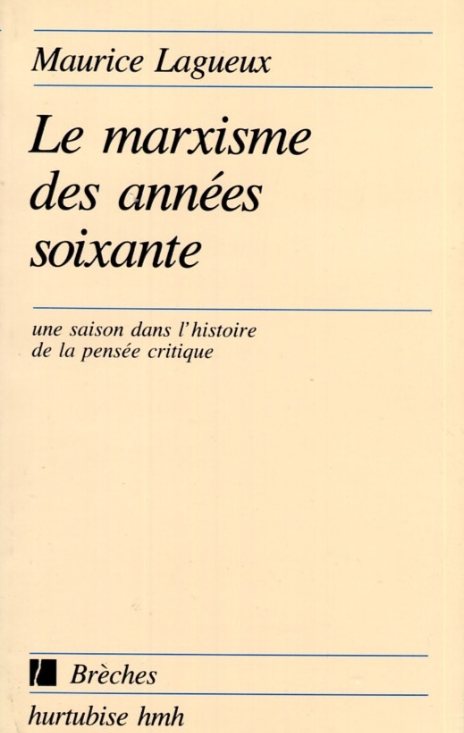Published Books:
2021: Lieux de savoir
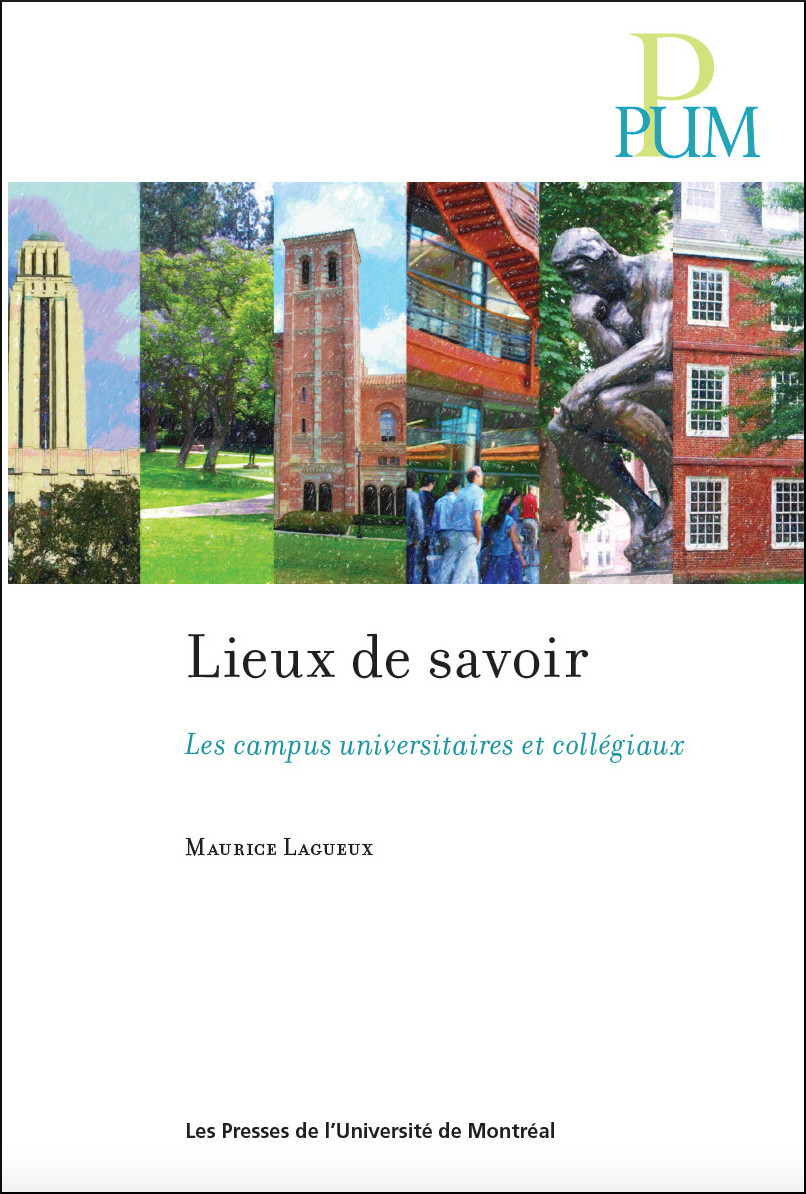
ISBN: 978-2-7606-4360-4
392 pages
How do university or college campuses, through the many components that shape them, contribute to providing places conducive to the development and dissemination of knowledge? This is what this book aims to show by examining each of the elements that make up these complexes, from auditoriums to laboratories and libraries, including student residences, sports and cultural facilities, not to mention the green spaces and the public art that is displayed there. Drawn from the 300 or so institutions referred to by the author, the numerous examples, often illustrated by photos and plans, highlight the diversity and complexity of the solutions to the problems posed by the establishment of a place that fosters the university's teaching and research mission. The book highlights the often unsuspected riches that campuses hold for those who pay attention to them. It will be of interest to architects and urban planners, as well as to professors and researchers in a wide variety of fields, and to all those who are interested in universities, either to pursue their studies or to participate in various types of activities. ERRATA
2017: Tout en même temps agnostique et croyant
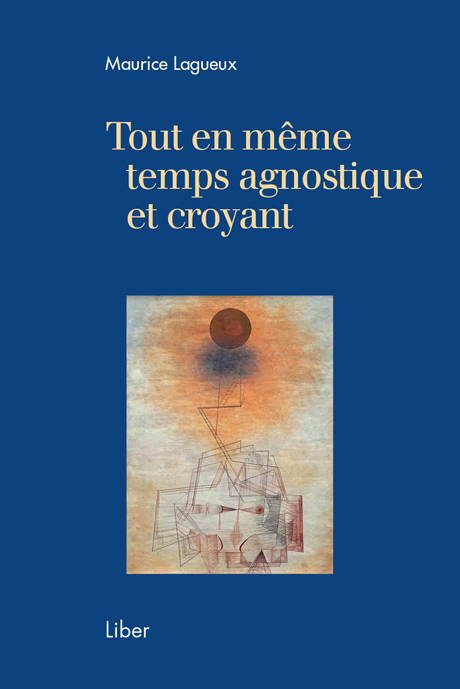
ISBN: 978-2-89578-604-7
288 pages
This book is not intended to give an overview of what a religion should be. Nor does it aim to put forward the case for atheism. Rather, it intends to show that a person who claims to be perfectly agnostic and a follower of a philosophy that values rationality above all else can be quite believer, and even practicing, without there being any contradiction. In such an approach, the cognitive framework to which many believers have deemed it appropriate to anchor their faith risks being somewhat debunked. On the other hand, many of the arguments that have contributed so much to the undermining of religious beliefs may be seriously weakened. In either case, such a position is based on the simple recognition that faith is in no way knowledge.
2010: Rationality and Explanation in Economics
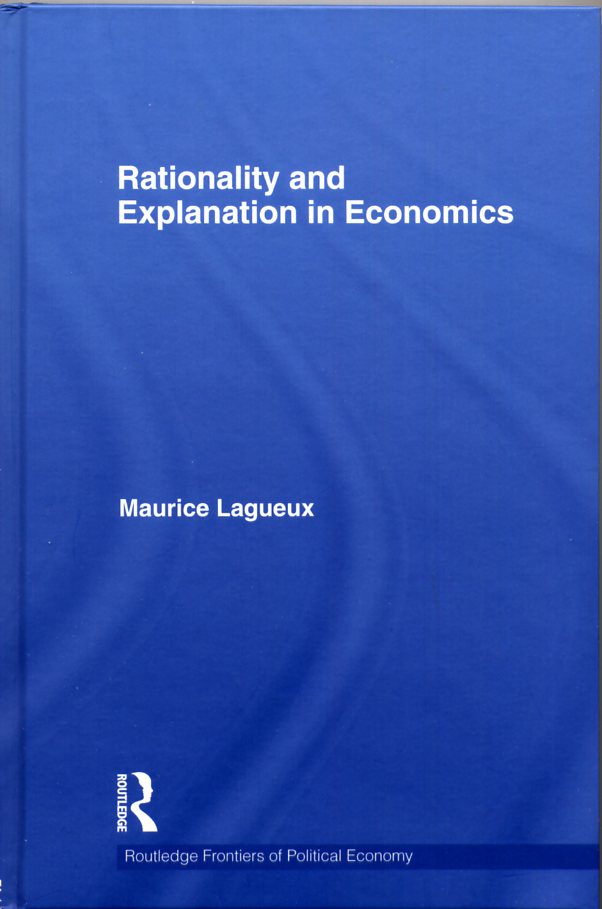
273 pages
Table of contents:
Introduction
Part I: Rationality in the history of economic thought
- Chapter 1: Rationality in economics before World War II,
- Chapter 2: The hardly consistent story of rationality consistency
- Chapter 3: Can methodological individualism survive?
- Chapter 4: Is still some room left for irrationality?
- Chapter 5: Minimal and maximal rationality: loosely defined concepts?
- Chapter 6: Why unrealism of assumptions remains a predicament.
- Chapter 7: Explaining in the absence of rationality.
- Chapter 8: Rationality and natural selection in economics.
- Chapter 9: Theories of explanation applied to economics.
2001: Actualité de la philosophie de l'histoire
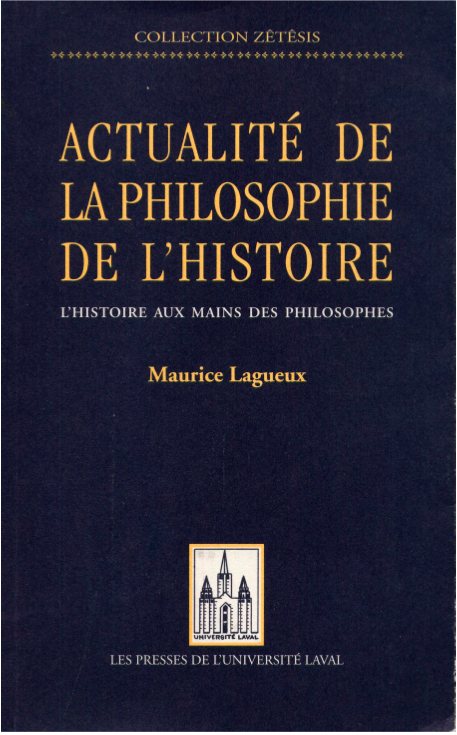
ISBN: 2-7637-7827-5
229 pages
This book aims to better understand the scope of the classical philosophies of history, often described as "speculative". These philosophies have long been viewed with great suspicion by those, philosophers and others, who have denounced their alleged attempt to take a global view of human history and predict its development without much concern for the scientific conclusions reached by historians. The book intends to show that, whatever the blunders rightly associated with such undertakings, the essence of the project from which they emerged cannot be ignored because it is still present in contemporary thought. The book therefore recalls how this project took shape among theologians of history before being radically secularized. It shows that this project has always been closely associated with a reflection on temporality, which cannot really be ignored in our time. He also shows that the reflection on what these philosophies designated by the expression "meaning of history" remains, in a less pretentious language, very present in contemporary thought. In the last chapter, the author questions more explicitly the relationship, which is closer than one generally assumes, between these philosophies of history and the work of several researchers, whether sociologists, political scientists or historians. Moreover, their relations with the philosophies concerning mostly the epistemology of historical science are considered.
1982: Le marxisme des années soixante
Governor General's Award, Essay section, 1982
ISBN: 2-89045-512-2
350 pages
The 1960s and 1970s were characterized by an exceptional infatuation in Western intellectual circles with the thought of Karl Marx. While doing justice to the many contributions of the author of Capital that have made it possible to better understand the functioning of our world, this book also points out their limits and, on occasion, the misconceptions they convey. Above all, it intends to highlight the astonishing lightness of the argumentation of certain authors of this period who received praise despite their lack of rigor simply because they insisted on associating their words with Marx's thought, which for a very large audience, seemed to guarantee their scientific character. During these two decades, in fact, many intellectuals believed that Marx’s thought was the very foundation of all historical and social science worthy of the name. It is in this context that the writings of Louis Althusser are criticized in this book, as well as those of various authors, such as Étienne Balibar, Nikos Poulantzas or Michel Lowy, among others, who benefited from this situation. But things were to change dramatically towards the end of the 1970s, when what remained of this infatuation with Marxism melted like snow in the sun, leaving all the room for the rise of neo-liberalism and right-wing ideologies. The book seeks to take the measure of such strange reversals of situation.
Festschrift:
2007: La philosophie de l'histoire. Hommages offerts à Maurice Lagueux
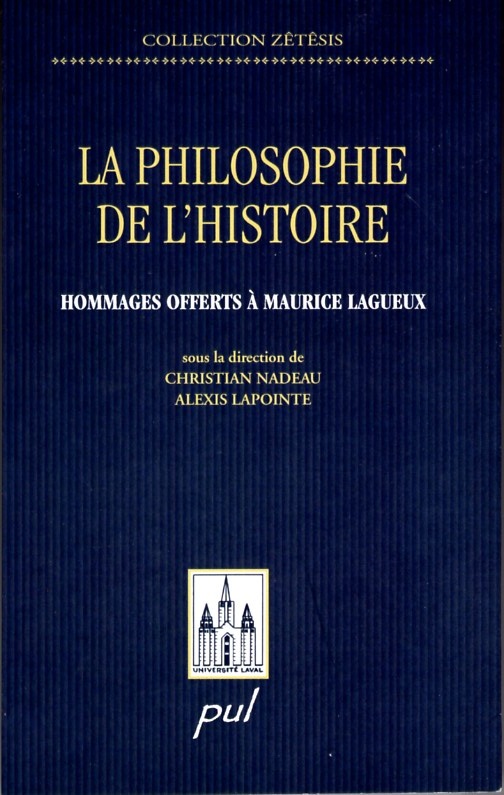
ISBN: 978-2-7637-8588-2
493 pages

